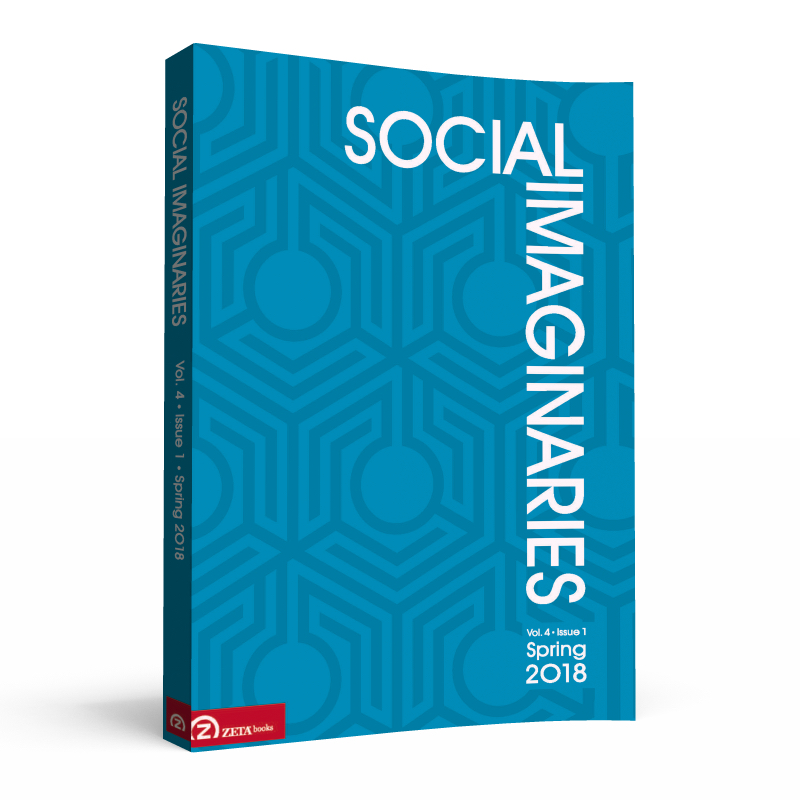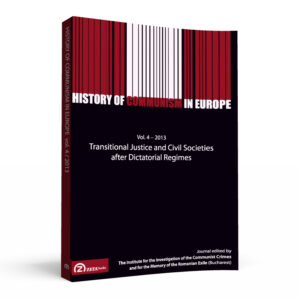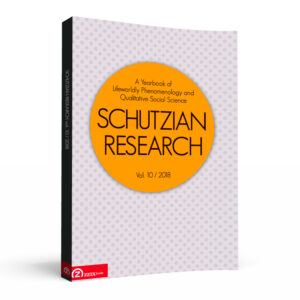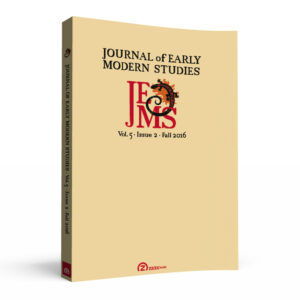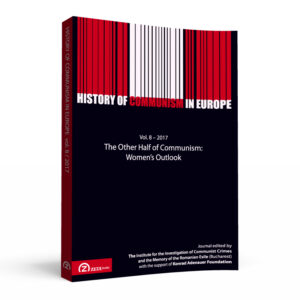TABLE OF CONTENTS
Gerard Rosich and Angelos Mouzakitis: Introduction
À. Lorena Fuster and Gerard Rosich: Mapping an Intellectual Trajectory: From Modernity to Progress via World-Sociology
- Abstract: This article aims to offer an interpretation of the work of Peter Wagner based on a genealogical reconstruction of his intellectual trajectory. It aims at opening routes for future mappings of his impressive work. Firstly, it addresses the main elements of his theory of modernity, which reached its definitive form during the work he carried out in the research programme Trajectories of modernity initiated in 2010. Secondly, an interpretation of his recent shift of focus from modernity to world-sociology is proposed. At the beginning of the 21st century, social theory faces the same kind of problems that at the beginning of 19th led to a particular way of investigating the social realm through the invention of the concept of ‘society’. The main difference between both situations is the extraordinary increase in the degrees of global interdependence, which situates the concept of ‘world’ in the same methodological position that the concept of ‘society’ had in the 19th century, once the contours that justified the methodological use of this concept were completely transformed by the events of the 20th century. Finally, how to interpret his more recent work on the notion of progress against the background of this shift of focus from modernity to world-sociology will be discussed. The task of reconstructing an idea of progress suitable for our times is analogous to his work on providing an interpretation why the ‘world’ has become the main structuring dimension of our social life.
Luc Boltanski: Historical Sociology and Sociology of History
- Abstract: Reading A Sociology of Modernity made me turn again towards history and encounter the path of a historical sociology. One can say that Peter Wagner´s work opens up particularly rich perspectives towards a new consideration of the complex relations between sociology and history and on the consequences that the internal movements within each discipline have had on the other. I shall approach some issues regarding these relations by looking, first, at the theme of temporality and at the distinction between the past and a present (often turned towards the horizon of the future) and, second, at the theme of the events and their frequent contradistinction to structures.
Aurea Mota: World-Sociology Beyond Eurocentrism: Considerations on Peter Wagner’s Theory of Modernity
- Abstract: In his recent work Peter Wagner has dealt with understandings of modernity in different world regions. He has expanded the analysis of modern transformations in Europe to parts of the Southern world. This turn in his work has been a response to challenges about the development of Western modernity, including his own earlier arguments. This article explores some features of Wagner’s recent research on the Brazilian, European and South African trajectories of modernity and his proposal for a world-sociology. The aspects of his work that I am especially interested in are: i) the establishment of the Atlantic connection for the ‘enablement’ of the modern transformation in the nineteenth century; ii) the question about the spaces where experiences happen and the interpretation of temporal transformations and historical continuities. As a sociologist who takes a classical approach to the analysis of historical transformations, Wagner has developed a conception of trajectories of modernity using the notion of societal self-understanding to challenge both conceptually and empirically the presuppositions of communality and continuity assumed as guiding ideas to account for difference in the modern world. I explore in this article the advantages of Wagner’s unorthodox sociological perspective that is to propose both a general understanding of autonomy as key features to comprehend historical transformation and to show how reflexivity opens up a variety of ways of being in the world.
Svjetlana Nedimović: To Restore the Sense of Future: ‘Street-reading’ of Peter Wagner’s understanding of the present and how things (are to) start making sense
- Abstract: Contemporary socio-political praxis has an ambivalent relationship with scholarly pursuits in social sciences. On the one hand, there has been a considerable increase of (institutional) pressure upon scientists to produce models and recommendations over the second half of the 20th century. On the other, transformations of the world have proved resilient to modelling as well as to grand theoretical narratives, to the point which rendered them conceptually unintelligible and normatively overwhelming to social sciences. This has had various consequences in different spheres. For those involved in direct transformative action across the world, it often spells lack of interpretative tools, measuring instruments and normative orientation beyond the framework of their immediate experiences and action. The paper will seek to uncover how historical-interpretative engagement with the present, which Peter Wagner undertakes in his book on progress (2016), coincides with an experience and interpretation of ‘street politics’ from one corner of the world at a moment of the present. By mapping this coincidence, voyaging most arbitrarily through academic and non-adacemic writings as well as the accounts of contemporary practice of various new movements in post-2008 world, I will try to demonstrate how Wagner’s work at conceptual reconstruction and historical sociology of the present can help understand and situate immediate and localized human efforts towards the reconstitution of the world. It is a testimony to the possibilities of developing anew a vibrant relationship between contemporary academia and praxis far beyond the vulgar automatic translation of conceptual narratives into daily policies or ideological programmes.
Ivor Chipkin: Sovereignty and Government in Africa after Independence
- Abstract: This essay is a contribution to the field of institutional studies in that it treats the State as a substantial phenomenon, composed of institutions that require analysis in their own right. Here, the focus is on the political form of African states from the 1960s to the 1980s. On the one hand, I will follow Bourdieu here in insisting that the study of government demands that we know something of the history of political thought (la pensée politique). This simple observation is seldomly applied when it comes to politics in postcolonial Africa. On the other, I use Peter Wagner´s concept of modernity to show that struggles against colonialism and Imperialism and the pursuit of self-determination for African and Asian peoples are unambiguously struggles against domination and for autonomy. The emergence of Third World nationalism (and the Non-Aligned Movement) is an event, therefore, firmly in modernity. So too is the phenomenon of the One-party state in Africa.
Bo Stråth: The Social Question and the Concepts of Progress and Freedom
- Abstract: A key concept in Peter Wagner’s academic production is modernity, and the thought that modernity is experience and interpretation is central. Not the historical and social facts as such but the interpretation of them is the motor of modernity. The way Wagner understands history as interpretation and struggle for superiority of interpretation brings him close to the historical philosophy of Reinhart Koselleck, which is based on two fundamental conceptual couples: experiences and expectations, and critique and crisis. If interpretation constitutes the mode to approach modernity, the question remains of what the phenomenon we are approaching really is. What is modernity? Wagner’s answer is that the imaginary of being autonomous is the core of modernity. From this point of departure, the chapter discusses the distinction between individual and collective autonomy, highlighted by what since the 1830s has been referred to as the social question, under connection to the concepts of freedom and progress. The conclusion links up with Wagner’s recent emphasis on the dynamics between protest against and defence of domination.
Axel Honneth: How to Envision Social Progress Today? On Peter Wagner’s Progress: A Reconstruction
- Abstract: It seems evident that ‘progress’ is a necessary and unavoidable perspective for all those of us today who aim at revitalizing emancipatory action. How could it be possible to start to thinking about the first steps to take in enhancing our present situation without a rough idea of the direction those steps are supposed to follow; since all emancipation is meant to bring about some kind of improvement of the existing living-conditions or an increase in human freedom, it seems justified to say that at least a vague anticipation of what such ‘improvement’ or ‘increase’ would consist in is an inevitable requirement for engaging in such practices. Against this background, the article will discuss Peter Wagner’s notion of progress.
Johann P. Arnason: Questioning Progress: Retreat, Revision or Revival?
- Abstract: The paper discusses some aspects of Peter Wagner’s argument in Progress: A Reconstruction, and relates them to the work of other authors, especially Hans Blumenberg and Marcel Gauchet. Blumenberg’s view on the Christian background to modern ideas of progress, as consisting in inherited questions rather than persisting beliefs in new guise, is accepted; it serves to contextualize the diverse and changing understandings of progress. They develop in interaction with the legacy of traditions, the unexpected and challenging results of growing knowledge, and the dynamics unfolding in different spheres of social life. The political sphere, where progress can be reinterpreted in terms of revolution and become a theme of political religions, is a particularly significant context. In that regard, the question of Communism and the need to examine its trajectory more closely is raised. This historical experience has a general bearing on the problematic of progress; it also concerns the particular turn taken after World War II, with the rise of Communist China, which had major implications for perspectives on progress. On a more general level, the issue of totalitarian regimes and their complicated links to the democratic imaginary should be included in a comprehensive discussion of progress and its paradoxes. Here Marcel Gauchet’s conception of democracy as a mixed regime proves to be helpful. The final conclusion is that present conditions suggest a more pessimistic view of progress than the one proposed by Wagner.

